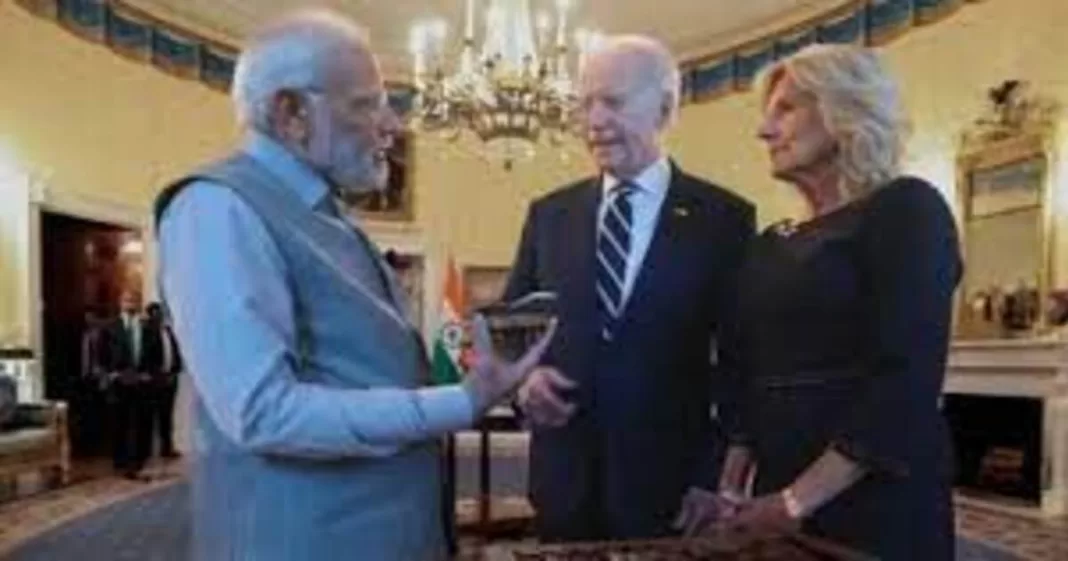The recent visit of Indian Prime Minister Narendra Modi to New York City has sparked widespread controversy and protests, with local elected officials and progressive lawmakers expressing their deep concerns over alleged human rights violations in India. As the first South Asian representatives in New York City and State government, Assembly Member Zohran Mamdani and City Council Members Shahana Hanif and Shekar Krishnan have joined forces in denouncing the visit, while Muslim Congresswomen Ilhan Omar and Rashida Tlaib, along with Jamie Raskin, have decided to boycott Prime Minister Modi’s joint congressional address. These actions reflect the growing international scrutiny surrounding the Modi government’s policies and their impact on religious minorities and democratic principles in India.
Appalled Assembly Members
Assembly Member Zohran Mamdani and City Council Members Shahana Hanif and Shekar Krishnan have issued a joint statement expressing their appallment at Prime Minister Modi’s visit to New York City. They highlight Modi’s record as the Chief Minister of Gujarat, where he was accused of inciting deadly riots against Muslims. They also criticize his actions as Prime Minister, which include suppressing protests, restricting press freedom, and marginalizing religious minorities in India. According to these elected officials, Modi’s policies are transforming India from a secular democracy into a rightwing Hindu nationalist state, a direction that conflicts with the values cherished by New York City.
Read More: Dozens of US lawmakers urge Biden to raise rights issues with Modi, letter shows
Lawmakers Boycott the Event
In a move that further amplifies the voices of dissent, Muslim Congresswomen Ilhan Omar and Rashida Tlaib, along with Jamie Raskin, have declared their intention to boycott Prime Minister Modi’s joint congressional address. They argue that his long history of human rights abuses, targeting of Muslims and religious minorities, and censorship of journalists is unacceptable and should not be given a platform in the United States’ capital. Rashida Tlaib took to Twitter to express her disapproval, emphasizing that the human rights violations allegedly committed by Modi cannot be ignored.
Call for Attention from US Legislators
More than 70 members of the US Senate and House of Representatives have signed a letter urging the Biden administration to address human rights concerns in discussions with Prime Minister Modi. The legislators reference the US government’s Report on International Religious Freedom, which highlights instances of hate speech by officials from Modi’s Bharatiya Janata Party (BJP), contributing to violence against Muslims and Christians. The report also documents the BJP’s policies, such as the criminalization of religious conversion and the demolition of Muslim-owned properties. Muslim advocacy organizations, including the Council on American-Islamic Relations, have echoed these concerns, asserting that the evidence of Modi’s repression against religious minorities in India is extensive.
Read More: Tesla’s Musk says eyeing significant India investments after meeting Modi
The visit of Indian Prime Minister Narendra Modi to New York City has sparked a significant backlash from elected officials and progressive lawmakers who condemn his alleged human rights abuses and discriminatory policies. Assembly Member Zohran Mamdani and City Council Members Shahana Hanif and Shekar Krishnan have raised their voices, denouncing Modi’s presence in the city and highlighting his record of inciting violence against Muslims. Additionally, Muslim Congresswomen Ilhan Omar and Rashida Tlaib, along with Jamie Raskin, have chosen to boycott Modi’s joint congressional address to express their opposition to his actions. The call for attention from US legislators reflects the growing international concern over the treatment of religious minorities and the erosion of democratic principles in India. As the debate surrounding Modi’s visit continues, it remains to be seen how these protests and appeals will shape the future of US-India relations and the global discourse on human rights.














